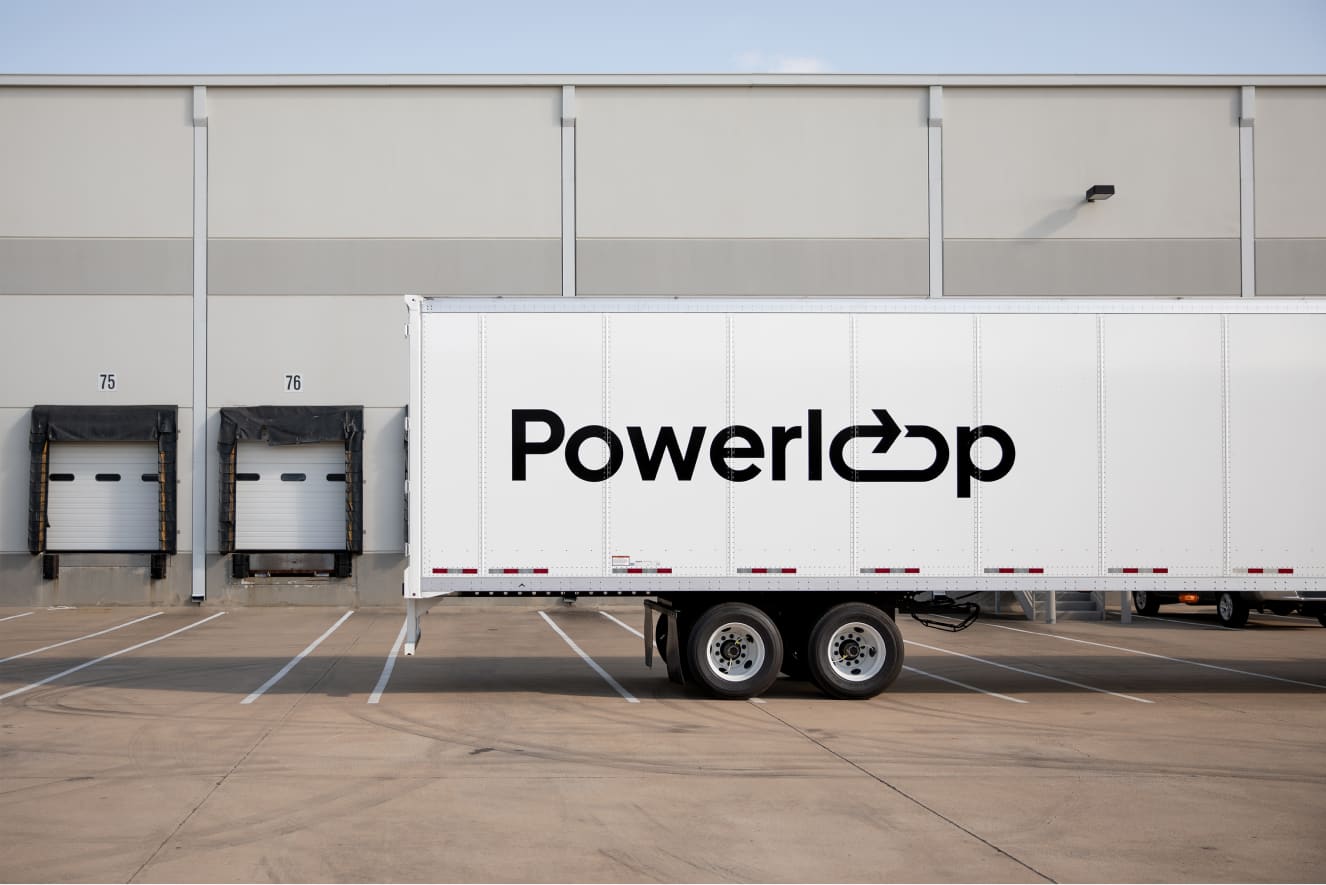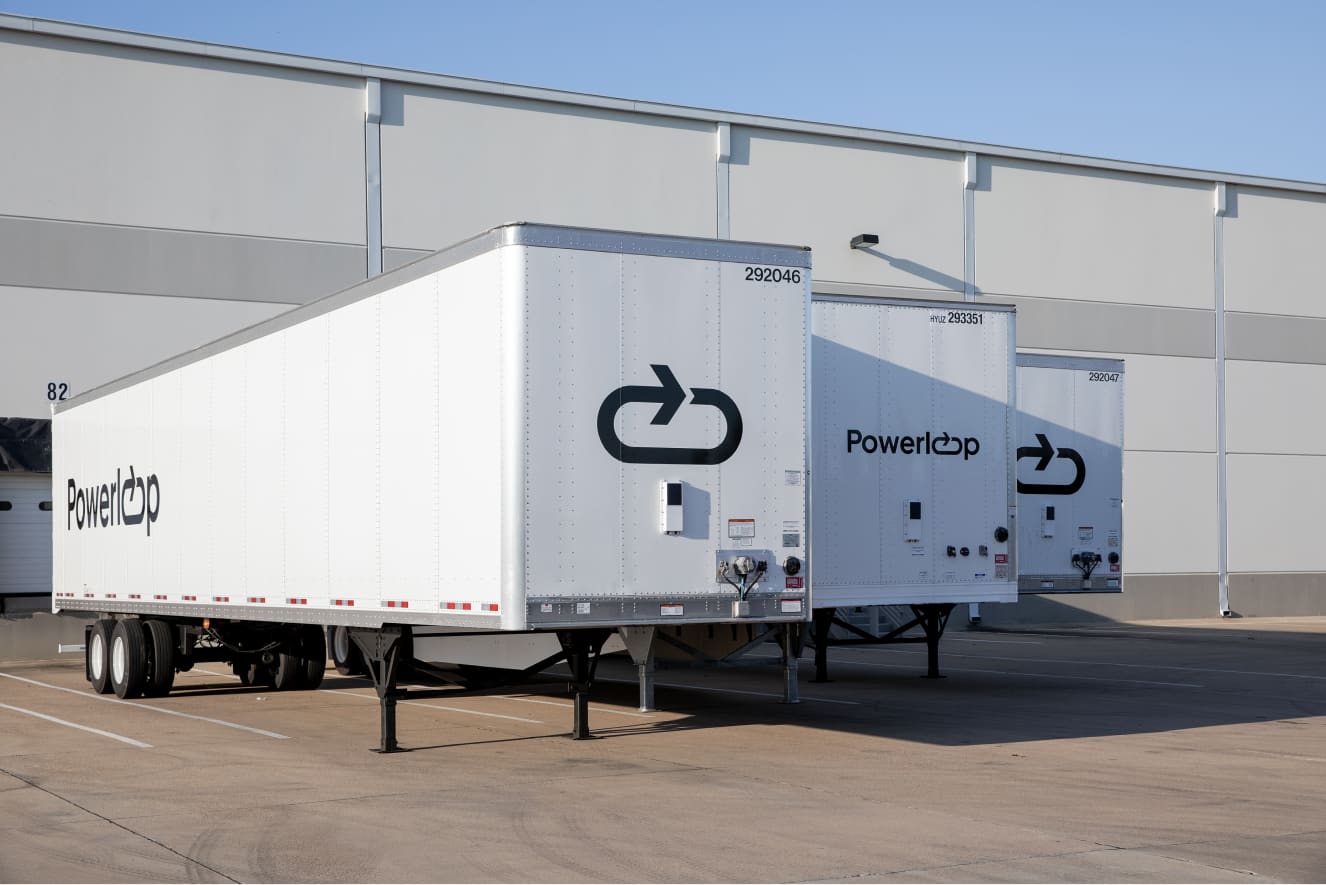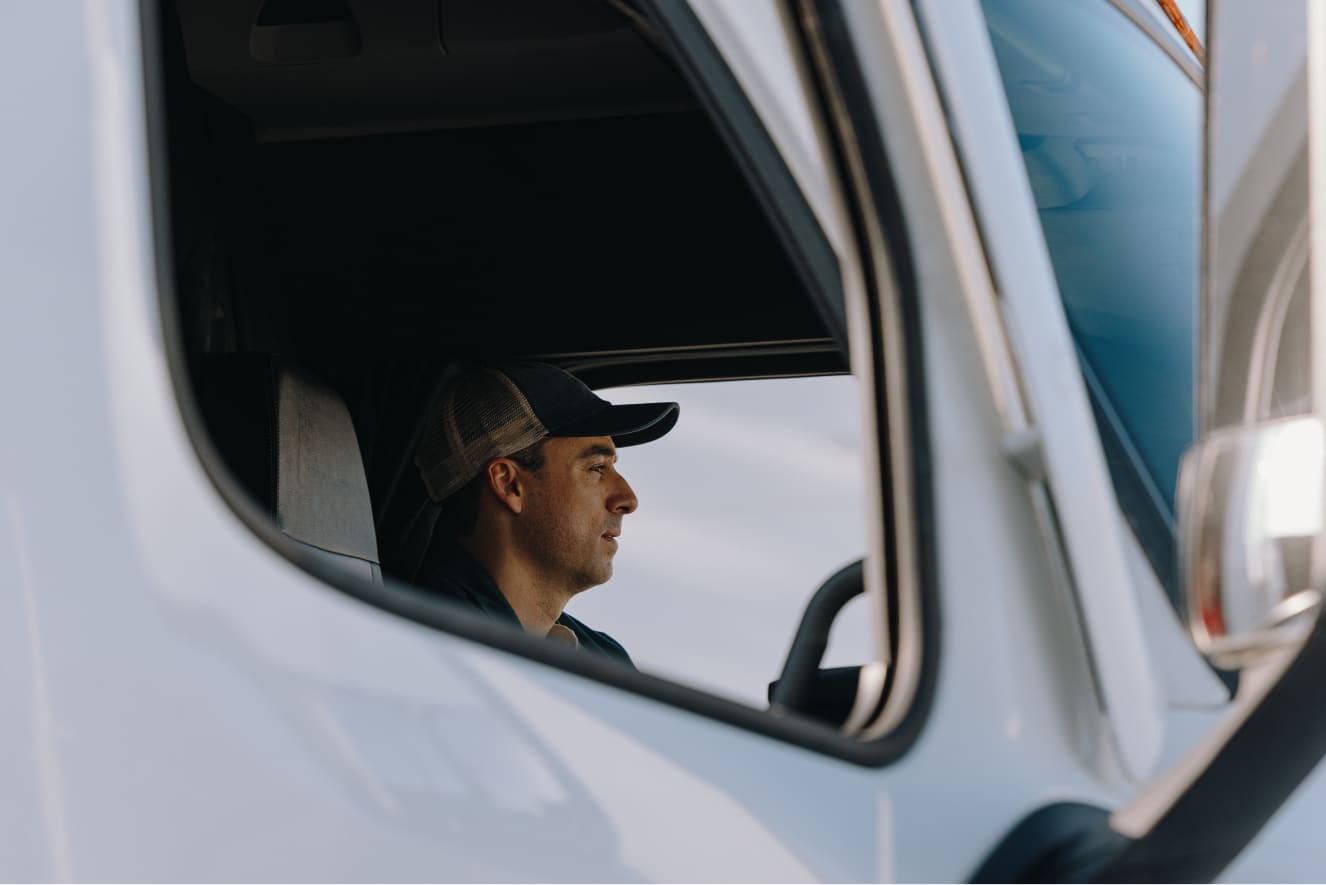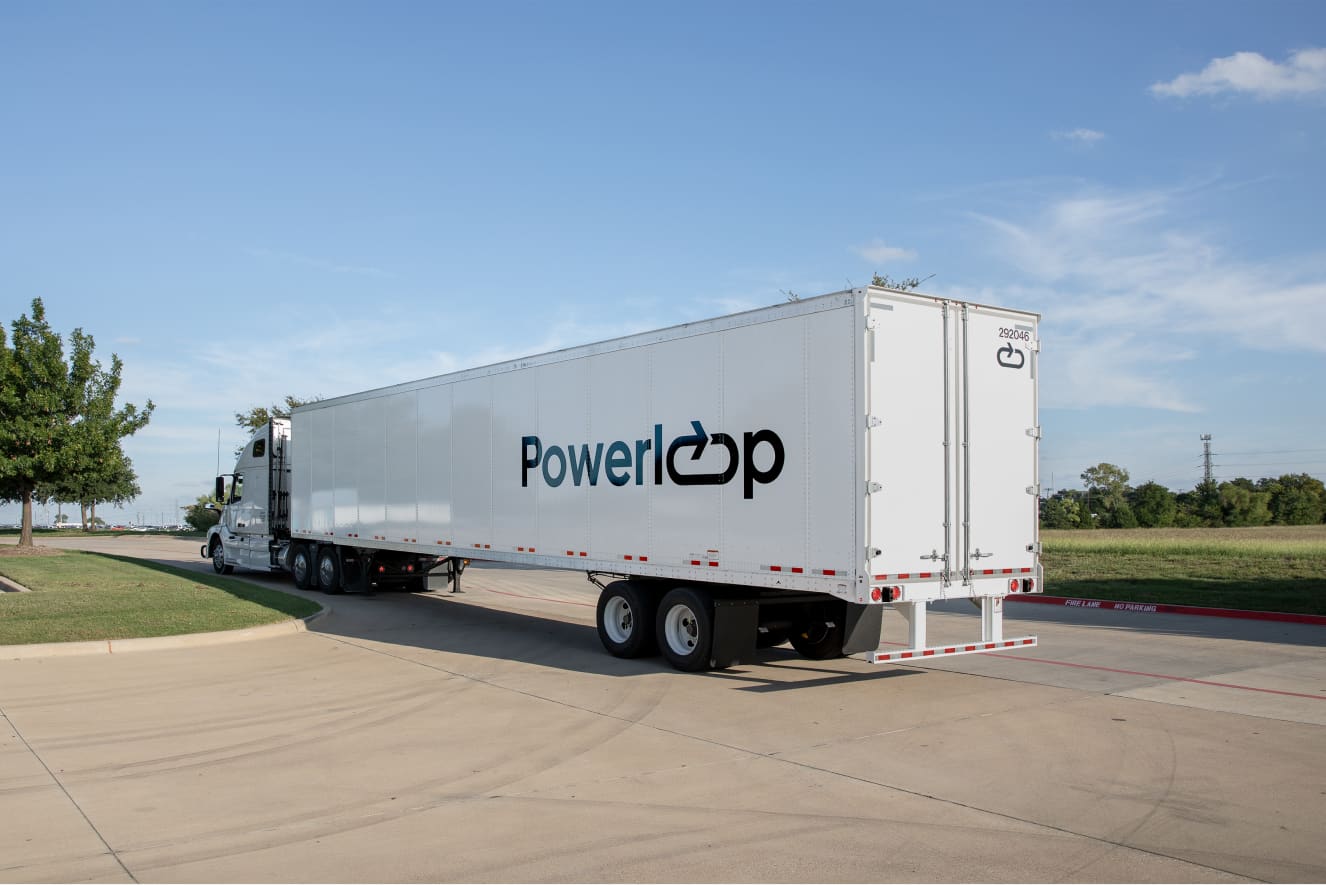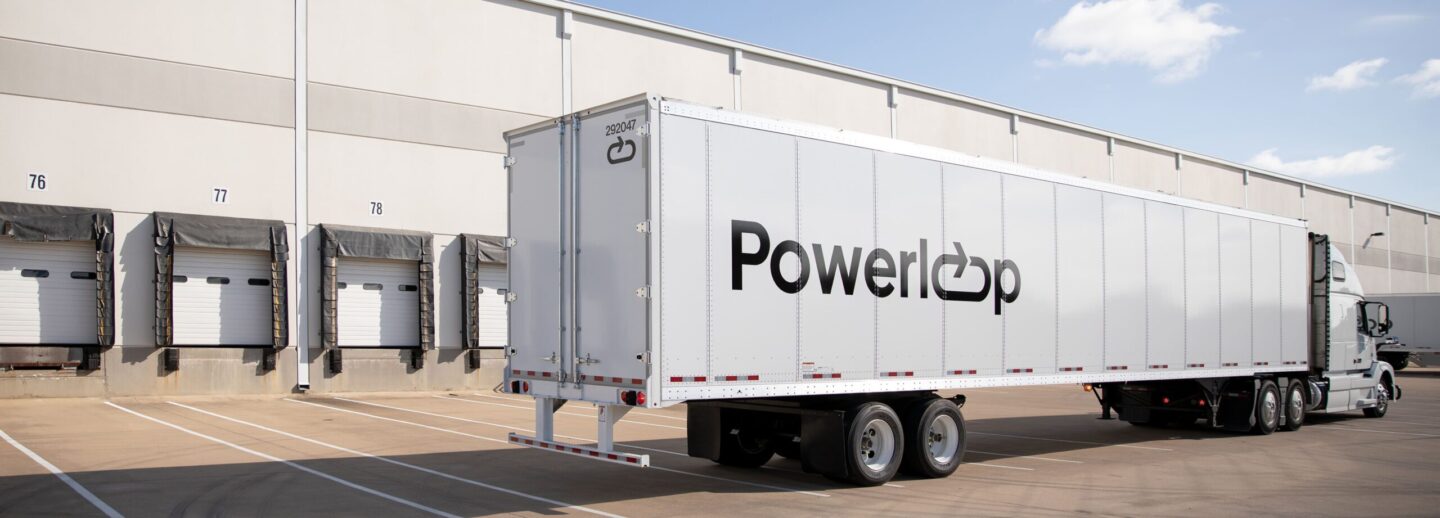
Power up with Drop and Hook Loads with Powerloop
Powerloop is an Uber Freight capacity solution that combines the reliability and control of the Powerloop trailer fleet with the flexibility and scalability of one of the largest shipper-carrier ecosystems.
12,500+
carriers in the Powerloop network
340,000+
loads serviced
Drop and Hook: Where reliability and control meets flexibility and scalability
With Powerloop, carriers can book power-only loads to serve some of the world’s largest shippers’ drop and live freight. They can book one Powerloop load at a time or multiple loads bundled across Uber Freight’s network to make every mile count. They can also grow their business by providing shippers with committed drop and live capacity on a weekly basis or dedicated capacity on an ongoing basis.
Shippers can secure flexible, reliable, and cost-effective coverage for their freight from a network of 121,000+ carriers. When shippers build a dedicated fleet with Uber Freight, they can also lower costs by leveraging shipments across Uber Freight’s network.
Powerloop for shippers
Secure nationwide freight transport
Gain real-time visibility
Secure your shipments and reduce fraud
Reduce costs with dedicated capacity
Add EV and AV capacity
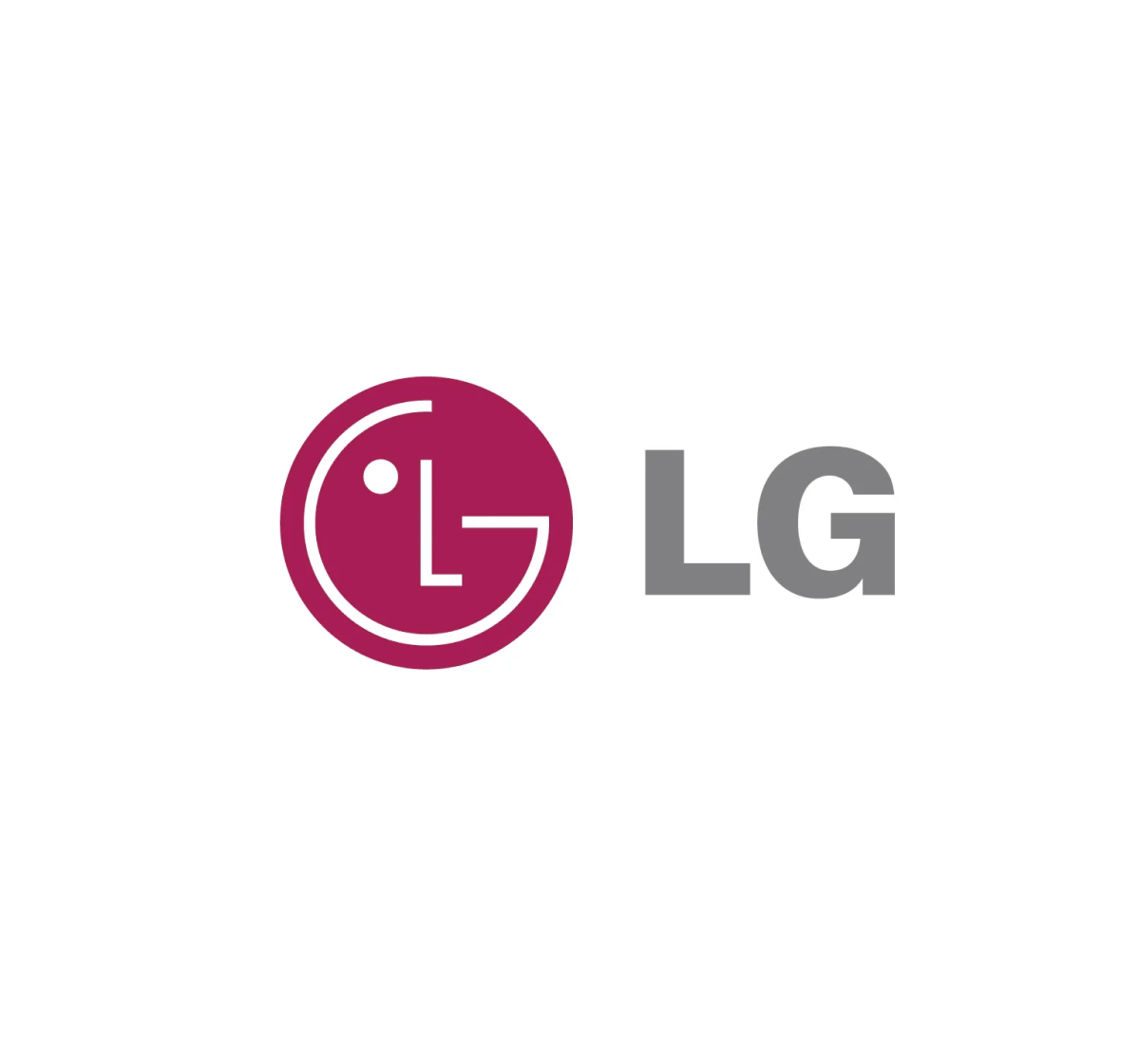
Delivering 3.6X ROI and $1.7M+ in savings for Kronos
Powerloop for carriers
Book with ease
Bundle loads to earn even more
Access consistent freight from top shippers
Spend less time on the docks
Learn more about Powerloop
FAQs
What is drop and hook capacity?
Drop and hook is a method of freight transportation wherein a driver drops off a trailer at a destination and then hooks up to another pre-loaded trailer for the next leg of the journey. This method streamlines the loading and unloading process and can significantly reduce the amount of time a driver spends waiting at a facility to pickup a trailer.
Drop and hook capacity refers to a carrier’s ability to perform drop and hook operations efficiently. Several factors determine this capacity:
- Number of Trailers: The more trailers a carrier has, the easier it is to maintain a smooth drop and hook operation, as there will always be a trailer ready to be picked up or dropped off.
- Facility Infrastructure: The availability of sufficient space and equipment at facilities to store and manage multiple trailers.
- Operational Efficiency: The processes in place to ensure quick and efficient handling of trailers, including technology and communication systems.
- Driver Availability: Having enough drivers to handle the constant movement of trailers between locations.
- Customer Demand: The extent to which shippers use drop and hook services can also affect a carrier’s drop and hook capacity. High demand from shippers who prefer this method can lead to increased capacity and efficiency.
Overall, drop and hook capacity is about ensuring that trailers can be quickly and efficiently switched between drivers and locations, minimizing downtime and maximizing the use of resources.
What are power-only loads?
Power only loads in freight refer to a transportation arrangement where a carrier provides only a tractor and driver, while a third party or a shipper provides the trailer. As a result, carriers are able to haul trailers that are already loaded.
Carriers and shippers alike can benefit from incorporating power-only loads in their capacity and service mix. Key benefits include:
- Efficiency: This setup can improve efficiency as it allows for quick pick-up and drop-off of trailers, reducing waiting times and increasing the number of loads a driver can handle.
- Flexibility: Shippers can manage their own trailers or outsource trailer management to a third-party logistics provider. Carriers can focus on providing the power units (tractors) and drivers.
- Cost-Effectiveness: For shippers, using power only services can be cost-effective because they don’t need to purchase additional trailers.
- Versatility: Power-only transportation services can be used for various types of trailers, including dry vans, refrigerated trailers, flatbeds, and specialized equipment.
- Minimal setup and maintenance costs: Carriers do not need to own and maintain trailers.
What is Powerloop?
Powerloop is Uber Freight’s drop-and-hook capacity solution that enables carriers to use Powerloop trailers to book power-only Uber Freight loads and provides shippers with flexible transportation solutions.
How does Powerloop benefit carriers?
Carriers can book multiple loads bundled across Uber Freight’s network, increasing earning potential by minimizing idle time and maximizing load volume.
How does Powerloop benefit shippers?
Powerloop allows shippers to secure nationwide power-only coverage, offering customizable capacity through Uber Freight’s network of 95,000+ carriers. With real-time visibility via smart trailers, seamless shipment tracking, and dedicated capacity options, Powerloop helps shippers cut costs and increase efficiency.
Are Powerloop trailers secure?
Most Powerloop trailers are equipped with state-of-the-art GPS, cargo sensors and 24/7 monitoring cameras, providing real-time visibility and alerts against cargo theft.
How does Powerloop integrate with the Uber Freight TMS?
Data from Powerloop’s smart trailers is seamlessly integrated into Uber Freight’s TMS via API, enabling seamless tracing, tracking, and proactive risk mitigation.
Can Powerloop help shippers with dedicated capacity needs?
Yes, shippers can build their own dedicated fleets with Powerloop, recuperating costs as shipments across Uber Freight’s network are pooled and serviced. This provides consistent capacity and long-term reliability.
Carriers: Book your first Powerloop load
Sign up on the Uber Freight Carrier App or Web Portal.
Shippers: Secure drop and hook capacity
Complete the form for more information.

